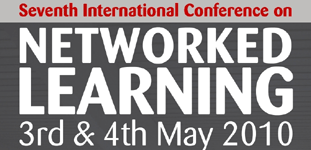

Just what is being reflected in online reflection?: new literacies for new media practices
Jen Ross
University of Edinburgh, Edinburgh, United Kingdom
Abstract
This paper argues that new literacies are required when reflective practices in higher education move online. Online reflective writing is profoundly influenced by wider cultural understandings of blogging and personal disclosure and risk online. We can see in current blogging practices a convergence of the rise of the concept of personal branding (Peters 1997, Lair et al 2005), and what Scott describes as the “cultural tendency to seek out confessional narratives of self-disclosure” (2004, 92). This convergence exposes a number of tensions: between self-promotion and authenticity, between accusations of narcissism and pressures to confess, and between moral panics around privacy and safety and a growing sense that online invisibility equates to personal and professional negligence, and that the more presence the better. As students negotiate the management of personal, academic and sometimes also professional voices in blogs and reflective e-portfolios, they bring in to play literacies which are new not in their substance but in their modality. The paper emerges from an ongoing research project exploring how students and teachers negotiate issues of identity, authenticity, ownership, privacy and performativity in high-stakes online reflection in higher education. It draws on data from 14 interviews with students and lecturers from three university programmes in the UK which have a high-stakes reflective component. These are a subset of the data generated as part of my project (31 interviews and 15 reflective artefacts from across 8 programmes covering face-to-face, online, undergraduate and postgraduate contexts, and subject areas including education, social work, built environment, health, and law). I propose a set of (often conflicting) norms and expectations widely associated with blogging. These cluster around themes of authenticity, risk, pretense, commodification, othering and narcissism. I explore how these are reflected in the assumptions and practices of students and teachers, and go on to argue for greater attention to be given to the nature of online reflective writing, and a more explicit and critical engagement with the tensions it embodies.
| About NLC | Welcome Messages| Acknowledgwments | Conference Proceedings| Keynote Speakers| Index of Presenting Authors| Contact |